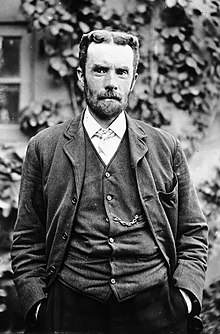Oliver Heaviside
| Oliver Heaviside | |
|---|---|
 |
|
| Born |
18 May 1850 Camden Town, Middlesex, England |
| Died | 3 February 1925 (aged 74) Torquay, Devon, England |
| Nationality | British |
| Fields | Electrical engineering, mathematics and physics |
| Institutions | Great Northern Telegraph Company |
| Known for |
Heaviside cover-up method Kennelly–Heaviside layer Reactance Heaviside step function Differential operators Vector analysis Heaviside condition Coaxial cable |
| Notable awards |
Faraday Medal (1922) Fellow of the Royal Society |
| Notes | |
|
Famous quote: Shall I refuse my dinner because I do not fully understand the process of digestion?
|
|
Oliver Heaviside FRS (/ˈɒlɪvər ˈhɛvisaɪd/; 18 May 1850 – 3 February 1925) was an English self-taught electrical engineer, mathematician, and physicist who adapted complex numbers to the study of electrical circuits, invented mathematical techniques for the solution of differential equations (equivalent to Laplace transforms), reformulated Maxwell's field equations in terms of electric and magnetic forces and energy flux, and independently co-formulated vector analysis. Although at odds with the scientific establishment for most of his life, Heaviside changed the face of telecommunications, mathematics, and science for years to come.
Heaviside was born in Camden Town, London, at 55 Kings Street (now Plender Street). He was a short and red-headed child, and suffered from scarlet fever when young, which left him with a hearing impairment. A small legacy enabled the family to move to a better part of Camden when he was thirteen and he was sent to Camden House Grammar School. He was a good student, placing fifth out of five hundred students in 1865, but his parents could not keep him at school after he was 16, so he continued studying for a year by himself and had no further formal education.
...
Wikipedia
